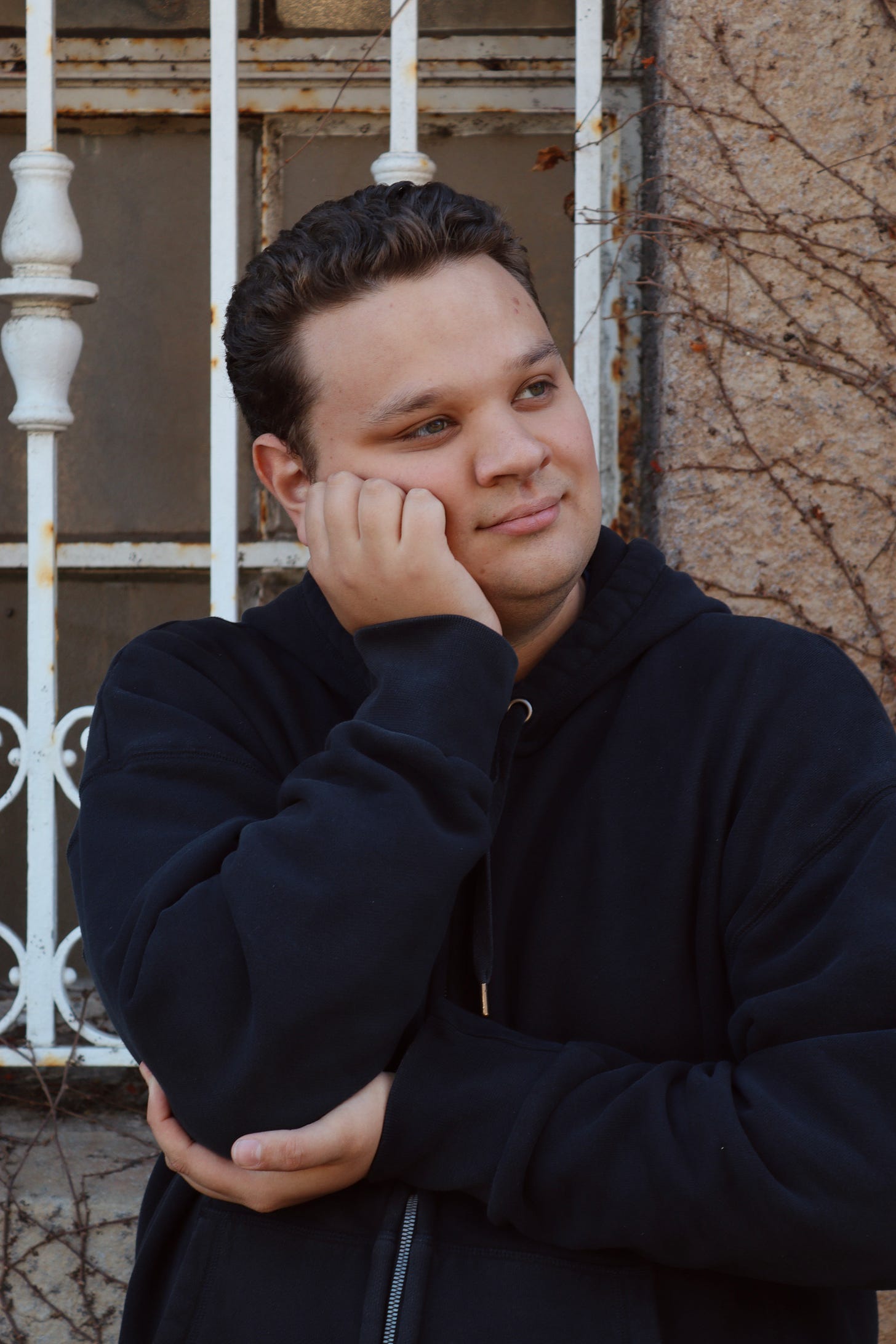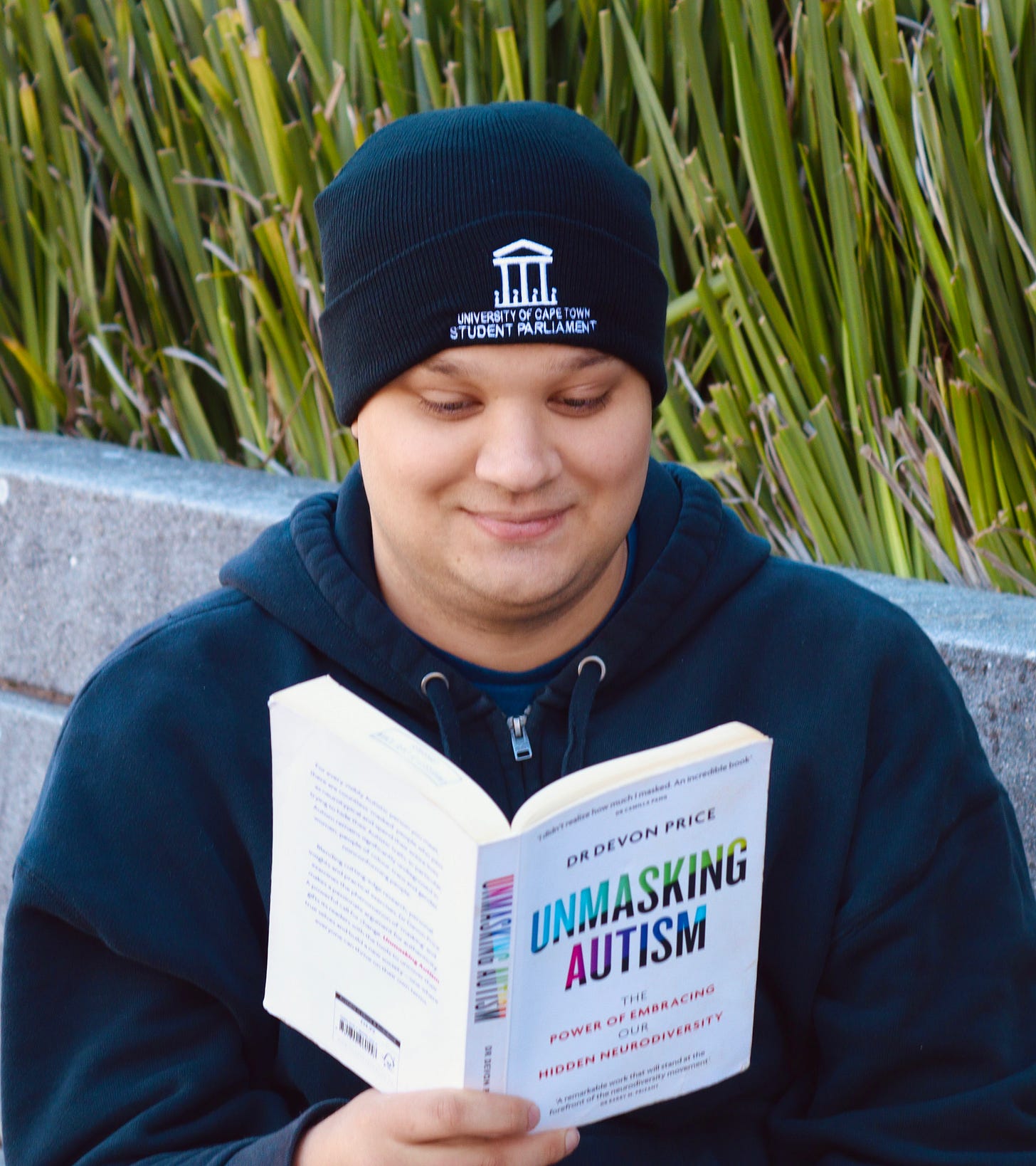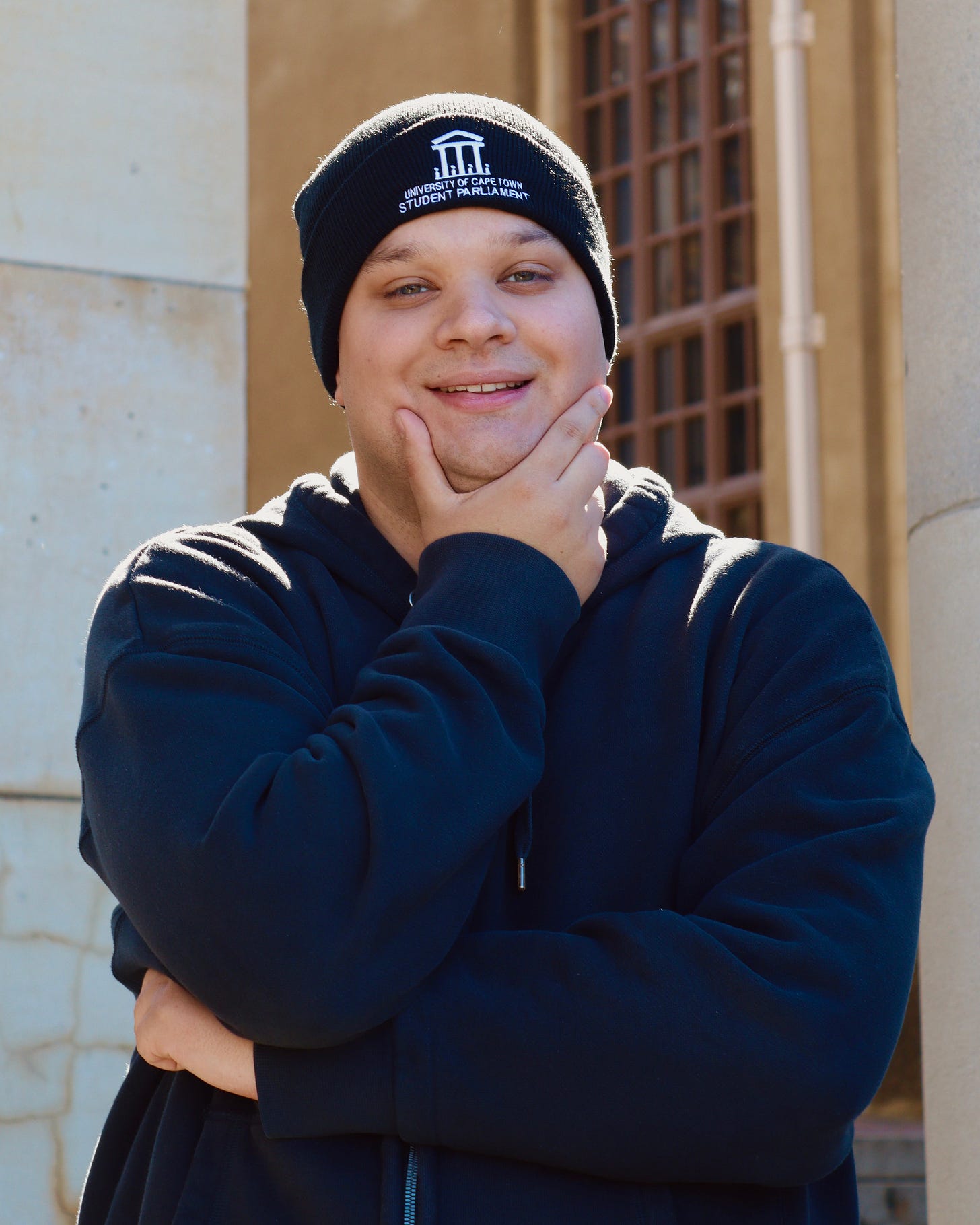Andrew Roets stands out not just as a dedicated advocate for individuals with disabilities, but also as a deeply introspective person whose personal experiences have shaped his identity and driven his passion for change. His story is a profound testament to resilience, advocacy, and personal growth, showing how personal adversity can fuel impactful change.

Andrew's journey to self-acceptance and advocacy began with challenging societal misconceptions. “At one point, I could not even say the word ‘autism’ out loud. Society viewed it as a disease that needed a cure,” he recalls. Growing up on the spectrum in the early 2000s, Andrew dealt with a society that viewed his condition as a disorder rather than a unique part of his identity. Misguided perceptions and ignorant comments led to feelings of isolation and self-doubt.
High school brought significant struggles, including rejection and ableist remarks as Andrew began disclosing his autism diagnosis. These experiences ignited his determination to change the narrative around autism. This resolve led him to embrace his identity and advocate for himself, a choice that transformed his self-perception and set the stage for his future activism. Through these trials, Andrew discovered his true strength, leading to a pivotal decision in university: to embrace his identity openly and advocate for himself and others.
Starting at the University of Cape Town (UCT) marked a fresh start for Andrew. "University was my chance to redefine myself, to step into my truth openly," he reflects. By being honest about his autism, Andrew began a new chapter defined by self-acceptance and advocacy, even though he knew it might lead to rejection from some. "There are days I struggle with my disability and question why it’s part of my life," he admits. "But I also have days where I embrace it. My feelings vary, but I wouldn’t trade being autistic for anything."
“My feelings vary, but I wouldn’t trade being autistic for anything."
Advocacy: Turning Challenges into Opportunities
“I believe in a purpose for everything, and advocating for those with disabilities and on the spectrum is part of mine. Although I am not religious, I see this as my calling,” he says. As the chairperson of UCT's Students with Disabilities’ Forum, he has been instrumental in fostering an inclusive environment. "The forum represents more than just a committee—it’s a platform for amplifying the voices of students with disabilities," he explains. Under his leadership, the forum has become a crucial resource, providing support and creating space for meaningful dialogue.
Andrew's leadership roles and advocacy work relate to his academic pursuits. He completed a BA in History, Politics, and African Studies. The curriculum's lack of focus on disability led him to concentrate on autism in his research. His Honours dissertation explored the medical history and societal perceptions of autism, aiming to bridge gaps in disability education.
Currently pursuing a Higher Certificate in Disability Practice, Andrew’s involvement in disability and autism advocacy has deepened. “This journey, including my work with the forum and understanding diverse needs, has reinforced my commitment to advocacy.” He also serves as the Transformation Representative for UCT’s Para-Sports and a content creator for Disability Matters magazine, underscoring his dedication to raising awareness and creating dialogue on disability issues.

Balancing rigorous academics with advocacy, Andrew has managed this challenge with skill. His honours dissertation on autism’s media representations and his place on the Dean’s Merit List reflect his excellence. "My studies and advocacy work complement each other," he says. "My academic pursuits enhance my understanding, while my advocacy brings practical insights into my research."
Overcoming Obstacles
Andrew reflects on his biggest challenge as overcoming internalised negativity shaped by external judgments and stereotypes. Inspired by autism advocate Jennifer Cook O'Toole, who emphasises the struggle for self-belief among those on the spectrum, Andrew has learned to see his autism as a gift. However, he still faces frustration from ableist comments like, “You don’t look autistic,” or “We’re all a little bit autistic.” He finds it disheartening that, despite multiple diagnoses and identifying with autistic traits, others diminish or question his experience.
Andrew’s advocacy involves navigating both personal and systemic challenges. "The biggest challenge is myself," he notes. Despite many obstacles, he has developed strategies for resilience, finding support from friends and solace in mental stimming and advocacy work. “Some days I feel empowered and ready to take on the world.”
“Embrace your struggles as part of your journey and seek out support where you can.”
Words of Wisdom and Advice for Neurodivergent Students
Andrew’s experiences have equipped him with valuable insights, particularly for neurodivergent students. “There will be tough days when you might feel down, but resilience builds over time," he says. "Find activities that bring you comfort.” He emphasises the importance of reaching out for support and connecting with Disability Service and support groups. “Do not hesitate to seek out allies and support structures. They can offer valuable insights and help you through difficult times,” he suggests. “Embrace your struggles as part of your journey and seek out support where you can,” he encourages. Connecting with others who share similar experiences and advocating for oneself are crucial components of navigating the path as a neurodivergent individual.

Future Goals and Aspirations
Andrew aims to enhance his advocacy and further his studies. His commitment to addressing various disability issues reflects his deep dedication to making a significant impact in the field. He is passionate about promoting South African Sign Language (SASL), particularly its official recognition at UCT, and has planned a SASL workshop for September. He is also looking forward to an internship with Vodacom’s Diversity and Inclusion division, viewing it as a chance to influence corporate disability inclusion and expand his activism. Additionally, Andrew plans to return to UCT to pursue a Postgraduate Diploma in Disability Studies and continue his work in disability rights and autism advocacy.
Identity and Personal Interests
Andrew Roets defies easy categorisation with his multifaceted identity. On the autism spectrum with psychosocial disabilities, including anxiety disorders, he also identifies as queer and has a fluid relationship with gender. “I see myself as navigating a world that often misunderstands or misrepresents my experiences,” he reflects. His commitment to authenticity and accurate representation, especially of marginalised groups, guides both his advocacy and personal journey. He acknowledges the intersectional challenges faced by people with disabilities, women, queer people, people of colour, and those from lower socioeconomic backgrounds.
“I see myself as navigating a world that often misunderstands or misrepresents my experiences.”
His background in politics and history fuels his fascination with political developments and historical insights. “I love reading historical books because they explain today’s world and offer solutions,” he notes. His developmental disabilities, including autism, dyspraxia, anxiety, and developmental coordination disorder, have also profoundly shaped his interests and personal growth. He finds relaxation through television and musicals, which provide opportunities for mental stimming and an escape from daily struggles. Traveling is another passion, offering adventure and new perspectives. “Traveling lets me escape and experience life differently,” he says. This interest is complemented by his love for travel videos on YouTube, as well as photography, which he uses to document his journeys and express himself artistically.
A Lasting Legacy
Diagnosed with autism and psychosocial disabilities early on, Andrew has navigated a world often marked by stigma and misunderstanding. His transformation from self-doubt to being a leading voice in the disability rights movement is truly extraordinary. Andrew Roets’s journey embodies resilience, advocacy, and personal growth. His contributions to the Students with Disabilities’ Forum and his academic research build a strong foundation for future impact. “I hope my work leaves a legacy of respect and equality for persons with disabilities,” he says.
“I hope my work leaves a legacy of respect and equality for persons with disabilities.”



